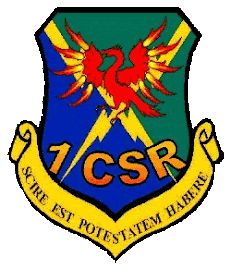
TITLE 6 > CHAPTER 1 > SUBCHAPTER IV > Part C > § 236 Prev | Next
§ 236. Visa issuance
How Current is This?
(a) Definition
In this subsection,[1] the term “consular office” [2] has the meaning given that term under section 101(a)(9) of the Immigration and Nationality Act (8 U.S.C. 1101 (a)(9)).
(b) In general
Notwithstanding section 104(a) of the Immigration and Nationality Act (8 U.S.C. 1104 (a)) or any other provision of law, and except as provided in subsection (c) of this section, the Secretary—
(1) shall be vested exclusively with all authorities to issue regulations with respect to, administer, and enforce the provisions of such Act [8 U.S.C. 1101 et seq.], and of all other immigration and nationality laws, relating to the functions of consular officers of the United States in connection with the granting or refusal of visas, and shall have the authority to refuse visas in accordance with law and to develop programs of homeland security training for consular officers (in addition to consular training provided by the Secretary of State), which authorities shall be exercised through the Secretary of State, except that the Secretary shall not have authority to alter or reverse the decision of a consular officer to refuse a visa to an alien; and
(2) shall have authority to confer or impose upon any officer or employee of the United States, with the consent of the head of the executive agency under whose jurisdiction such officer or employee is serving, any of the functions specified in paragraph (1).
(c) Authority of the Secretary of State
(1) In general
Notwithstanding subsection (b) of this section, the Secretary of State may direct a consular officer to refuse a visa to an alien if the Secretary of State deems such refusal necessary or advisable in the foreign policy or security interests of the United States.
(2) Construction regarding authority
Nothing in this section, consistent with the Secretary of Homeland Security’s authority to refuse visas in accordance with law, shall be construed as affecting the authorities of the Secretary of State under the following provisions of law:
(A) Section 101(a)(15)(A) of the Immigration and Nationality Act (8 U.S.C. 1101 (a)(15)(A)).
(B) Section 204(d)(2) of the Immigration and Nationality Act (8 U.S.C. 1154) (as it will take effect upon the entry into force of the Convention on Protection of Children and Cooperation in Respect to Inter-Country adoption).
(C) Section 212(a)(3)(B)(i)(IV)(bb) of the Immigration and Nationality Act (8 U.S.C. 1182 (a)(3)(B)(i)(IV)(bb)).
(D) Section 212(a)(3)(B)(i)(VI) of the Immigration and Nationality Act (8 U.S.C. 1182 (a)(3)(B)(i)(VI)).
(E) Section 212(a)(3)(B)(vi)(II) of the Immigration and Nationality Act (8 U.S.C. 1182 (a)(3)(B)(vi)(II)).
(F) Section 212(a)(3)(C) of the Immigration and Nationality Act (8 U.S.C. 1182 (a)(3)(C)).
(G) Section 212(a)(10)(C) of the Immigration and Nationality Act (8 U.S.C. 1182 (a)(10)(C)).
(H) Section 212(f) of the Immigration and Nationality Act (8 U.S.C. 1182 (f)).
(I) Section 219(a) of the Immigration and Nationality Act (8 U.S.C. 1189 (a)).
(J) Section 237(a)(4)(C) of the Immigration and Nationality Act (8 U.S.C. 1227 (a)(4)(C)).
(K) Section 401 of the Cuban Liberty and Democratic Solidarity (LIBERTAD) Act of 1996 [22 U.S.C. 6091].
(L) Section 613 of the Departments of Commerce, Justice, and State, the Judiciary and Related Agencies Appropriations Act, 1999 [3] (as contained in section 101(b) of division A of Public Law 105–277) (Omnibus Consolidated and Emergency Supplemental Appropriations Act, 1999); 112 Stat. 2681; H.R. 4328 (originally H.R. 4276) as amended by section 617 of Public Law 106–553.
(M) Section 103(f) of the Chemical Weapon Convention Implementation Act of 1998 [22 U.S.C. 6713 (f)] (112 Stat. 2681–865).
(N) 801 of H.R. 3427, the Admiral James W. Nance and Meg Donovan Foreign Relations Authorization Act, Fiscal Years 2000 and 2001 [8 U.S.C. 1182e], as enacted by reference in Public Law 106–113.
(O) Section 568 of the Foreign Operations, Export Financing, and Related Programs Appropriations Act, 2002 (Public Law 107–115).
(P) Section 51 of the State Department Basic Authorities Act of 1956 (22 U.S.C. 2723).
(d) Consular officers and chiefs of missions
(1) In general
Nothing in this section may be construed to alter or affect—
(A) the employment status of consular officers as employees of the Department of State; or
(B) the authority of a chief of mission under section 207 of the Foreign Service Act of 1980 (22 U.S.C. 3927).
(2) Construction regarding delegation of authority
Nothing in this section shall be construed to affect any delegation of authority to the Secretary of State by the President pursuant to any proclamation issued under section 212(f) of the Immigration and Nationality Act (8 U.S.C. 1182 (f)), consistent with the Secretary of Homeland Security’s authority to refuse visas in accordance with law.
(e) Assignment of Homeland Security employees to diplomatic and consular posts
(1) In general
The Secretary is authorized to assign employees of the Department to each diplomatic and consular post at which visas are issued, unless the Secretary determines that such an assignment at a particular post would not promote homeland security.
(2) Functions
Employees assigned under paragraph (1) shall perform the following functions:
(A) Provide expert advice and training to consular officers regarding specific security threats relating to the adjudication of individual visa applications or classes of applications.
(B) Review any such applications, either on the initiative of the employee of the Department or upon request by a consular officer or other person charged with adjudicating such applications.
(C) Conduct investigations with respect to consular matters under the jurisdiction of the Secretary.
(3) Evaluation of consular officers
The Secretary of State shall evaluate, in consultation with the Secretary, as deemed appropriate by the Secretary, the performance of consular officers with respect to the processing and adjudication of applications for visas in accordance with performance standards developed by the Secretary for these procedures.
(4) Report
The Secretary shall, on an annual basis, submit a report to Congress that describes the basis for each determination under paragraph (1) that the assignment of an employee of the Department at a particular diplomatic post would not promote homeland security.
(5) Permanent assignment; participation in terrorist lookout committee
When appropriate, employees of the Department assigned to perform functions described in paragraph (2) may be assigned permanently to overseas diplomatic or consular posts with country-specific or regional responsibility. If the Secretary so directs, any such employee, when present at an overseas post, shall participate in the terrorist lookout committee established under section 304 of the Enhanced Border Security and Visa Entry Reform Act of 2002 (8 U.S.C. 1733).
(6) Training and hiring
(A) In general
The Secretary shall ensure, to the extent possible, that any employees of the Department assigned to perform functions under paragraph (2) and, as appropriate, consular officers, shall be provided the necessary training to enable them to carry out such functions, including training in foreign languages, interview techniques, and fraud detection techniques, in conditions in the particular country where each employee is assigned, and in other appropriate areas of study.
(B) Use of Center
The Secretary is authorized to use the National Foreign Affairs Training Center, on a reimbursable basis, to obtain the training described in subparagraph (A).
(7) Report
Not later than 1 year after November 25, 2002, the Secretary and the Secretary of State shall submit to Congress—
(A) a report on the implementation of this subsection; and
(B) any legislative proposals necessary to further the objectives of this subsection.
(8) Effective date
This subsection shall take effect on the earlier of—
(A) the date on which the President publishes notice in the Federal Register that the President has submitted a report to Congress setting forth a memorandum of understanding between the Secretary and the Secretary of State governing the implementation of this section; or
(B) the date occurring 1 year after November 25, 2002.
(f) No creation of private right of action
Nothing in this section shall be construed to create or authorize a private right of action to challenge a decision of a consular officer or other United States official or employee to grant or deny a visa.
(g) Study regarding use of foreign nationals
(1) In general
The Secretary of Homeland Security shall conduct a study of the role of foreign nationals in the granting or refusal of visas and other documents authorizing entry of aliens into the United States. The study shall address the following:
(A) The proper role, if any, of foreign nationals in the process of rendering decisions on such grants and refusals.
(B) Any security concerns involving the employment of foreign nationals.
(C) Whether there are cost-effective alternatives to the use of foreign nationals.
(2) Report
Not later than 1 year after November 25, 2002, the Secretary shall submit a report containing the findings of the study conducted under paragraph (1) to the Committee on the Judiciary, the Committee on International Relations, and the Committee on Government Reform of the House of Representatives, and the Committee on the Judiciary, the Committee on Foreign Relations, and the Committee on Government [4] Affairs of the Senate.
(h) Report
Not later than 120 days after November 25, 2002, the Director of the Office of Science and Technology Policy shall submit to Congress a report on how the provisions of this section will affect procedures for the issuance of student visas.
(i) Visa issuance program for Saudi Arabia
Notwithstanding any other provision of law, after November 25, 2002, all third party screening programs in Saudi Arabia shall be terminated. On-site personnel of the Department of Homeland Security shall review all visa applications prior to adjudication.
[1] So in original. Probably should be “section”.
[2] So in original. Probably should be “ ‘consular officer’ ”.
[3] See References in Text note below.
[4] So in original. Probably should be “Governmental”.
Search this title:
Notes
Updates
Parallel regulations (CFR)
Your comments
Prev | Next
LII has no control over and does not endorse any external Internet site that contains links to or references LII.
Study law abroad: Cornell Paris Institute
* about us
* help
* © copyright



















August 2, 2007
kingalonzoalvarezdepineda13 - you are a total hipocrit! You judge others so harshly while doing the very thing you claim you hate. Every morning your SPAM emails jam my computer up at work and I can't get my work done for about 5 - 10 minutes until your crap finishes downloading (kinda like you did with this opinion section). When asked to stop emailing the DMC campus you don't even reply or stop. You think you are so justified in raising a stink- but when others don't want to hear your opinion you cram it in their face anyway. YWith your approach - even if what you are saying is true- no one wants to hear it because it's SO obnoxiously done. You need to get the log out of your own eye.